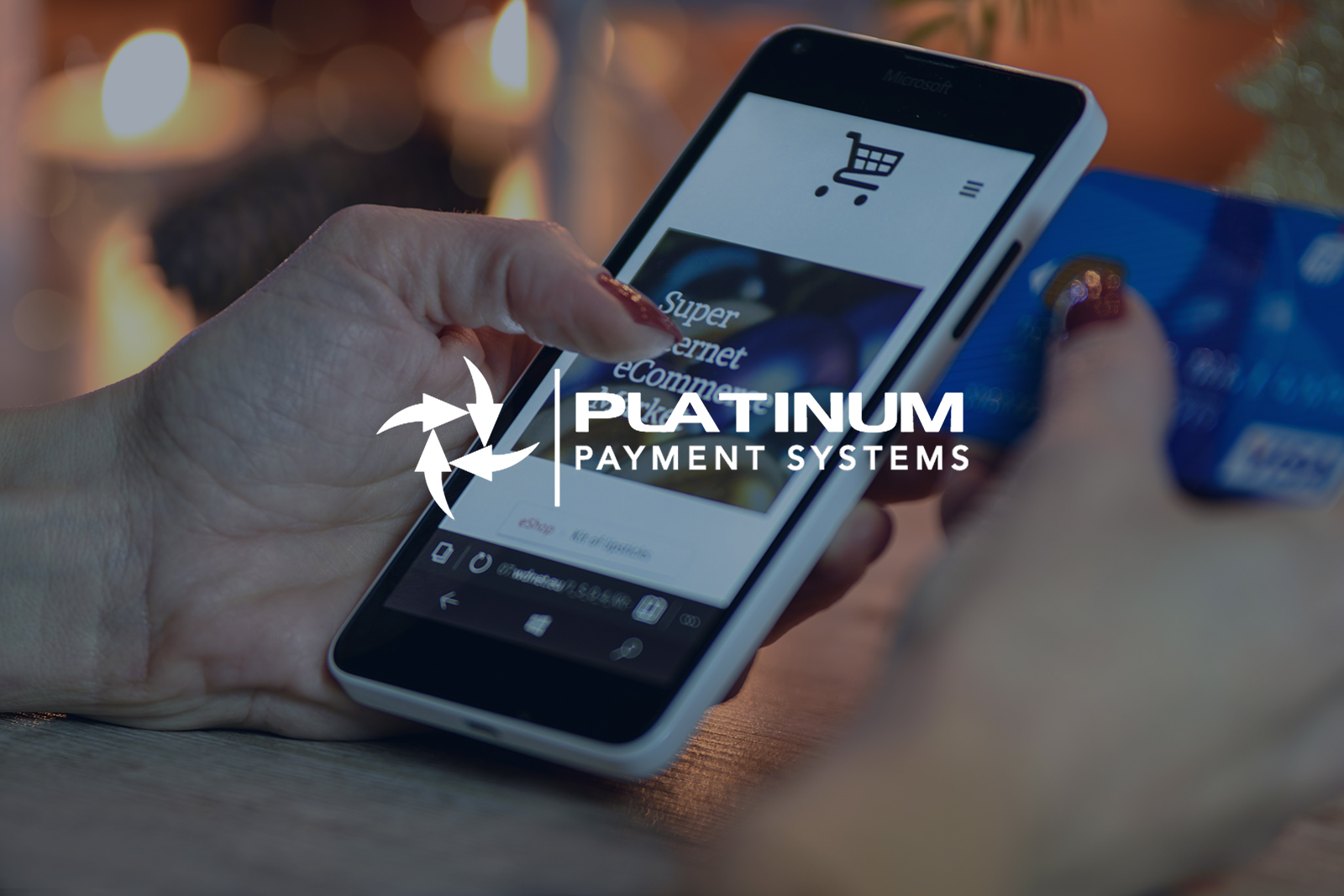World
Are Card-Not-Present Transactions Safe? We asked Platinum Payment Systems

Card-Not-Present (CNP) transactions are generally known to be riskier than Card-Present transactions, as they leave both the customer and the merchant open for fraud.
Online shopping is no longer the future, it’s the present.
In fact, 75% of people worldwide shop online at least once a month! This is according to Statistica, who has also reported that eCommerce sales are predicted to go as high as $4.2 trillion by the end of 2020 and over $6.5 trillion by 2023.
It’s no surprise then, that Card-Not-Present (CNP) transactions have become all the more prevalent. But, what exactly are card-not-present transactions? And, are they safe?
What Are Card-Not-Present Transactions?
First thing’s first, you’re probably already familiar with traditional Card-Present transactions.
Card-Present transactions are when a customer swipes a credit card through a terminal or mobile swiper, and the payment is processed by a merchant processor that facilitates the transfer of funds from the customer’s bank account and into the merchant’s business bank account.
In effect, a Card-Not-Present transaction is pretty much the same thing — funds are transferred from a customer’s bank account to the merchant’s bank account by a ‘middleman’.

The only difference is that, because the transaction is happening virtually, there is no way of physically swiping a card through a terminal. Which basically means, that the transaction has to happen with the card not present.
Evidently, this changes a lot of things. Including how the payment is settled.
Because, CNP transactions are initiated and authorized with the customer inputting their card credentials (their account number, card expiration date, card security code, etc.) through a payment gateway available on the merchant’s eCommerce store.
And, unfortunately, because it’s harder to prove card ownership with CNP transactions, it’s definitely riskier than traditional CP transactions. After all, with CP transactions, at the very least, the card’s physical presence allows for a more direct authentication process.
What Are the Risks of CNP Transactions?
As described above, because CNP transactions are virtually facilitated, there are more definite risks involved. And, the most common types of these risks are:
- Credit Card Fraud: Credit card fraud is more likely to occur for CNP transactions because it’s much easier to steal relevant credit card information (the account number, expiration date, security code, etc.) than it is to physically steal a card. This type of fraud definitely affects the card owner — who may not even notice that their card is being used to purchase items without their consent. But it can affect merchants as well — as it could lead to chargebacks.
- Chargeback Fraud: A chargeback fraud occurs when a customer purchases and then receives goods and services from a merchant and then has their payment returned to them by the bank because of an issue with the transaction. In this case, the merchant is at an obvious loss — as they lose out on both their product and the payment.
Either type of fraud is incredibly damaging for the merchant, and potentially damaging for the customer as well — which is why it is so important that you know how to protect your business, and secure your customers, from these types of risk.

The Bottom Line: How Can You Protect Your Business from The Risk of Card-Not-Present Transactions?
Fraud is an incredibly real danger. And, as mentioned, the risks of fraud are definitely higher for Card-Not-Present transactions. Fortunately, however, it’s not all bad. There are ways of mitigating these risks — whether you’re the buyer or a merchant.
For merchants, as an example, you can hire a merchant processor like Platinum Payment Systems, who offer both fraud and chargeback protection. And thus, can help support you with navigating through the risks involved.
In fact, in a recent interview, one of Platinum Payment Systems’ managing founders, Jed Morley, said: “Our goal with PlatPay, is to help others solve their payment processing problems and support them with whatever else they need to handle the risks and balance the different types of payments they receive.”
And so, again, while CNP transactions are not quite up to the same security standards as CP transactions are at present, there are ways of protecting yourself and your business from the risks. It’s just a matter of finding a solution that will work for you.
World
More Named Storms — Is Your Luxury Pergola Ready?

The National Oceanic and Atmospheric Administration (NOAA) predicted a 60% chance that the 2025 Atlantic hurricane season would be above normal. The administration said to watch for between 13 and 19 total named storms — those with winds of 39 mph or higher.
For homeowners in hurricane-prone regions, this raises an urgent question: are your outdoor spaces ready to weather the storm?
PERGOLUX, a leader in durable outdoor structures, designs powder-coated aluminum pergolas with adjustable louvers to withstand the harshest environments.
“Today’s outdoor living spaces face the wrath of nature’s extremes,” says Tim Heneveld, Country Director of PERGOLUX North America. “Hurricanes, tropical storms, and flash floods bring powerful winds exceeding 100 mph. Their relentless rain and rising floodwaters can quickly devastate unprepared structures. If you want to protect your investments, resilient design is essential.”
Is your aluminum pergola and louvered roof ready to take on intense storms?
The open-air elegance of patio pergolas with slat roofs is perfect for a gentle breeze, but can make them vulnerable to the violent forces of hurricane winds. These storm winds pack powerful uplift and lateral forces.
Wind uplift occurs when gusts of wind flow beneath the roof, generating upward pressure that can lift the entire structure off its base. Lateral forces push a pergola horizontally, causing it to lean or even collapse.
The key defense against these powerful forces? A reinforced frame.
“Strong, well-engineered frames act as the backbone of your pergola,” notes Heneveld. “Aluminum is the ideal material for a pergola’s frame. It combines the strength needed to resist bending or breaking with a lighter weight that reduces strain on the foundation.”
PERGOLUX’s pergolas feature reinforced frames engineered to withstand intense storms with confidence. In fact, their latest model, the Skydance Series 3 Pergola, is specially crafted to endure winds up to 165 mph, which means that even when fierce hurricanes like Milton sweep through, these pergolas remain intact.
Reinforced aluminum frames designed with thickened beams and precision connections stand up to wind uplift and lateral pressure. Hurricane-rated bolts, brackets, and screws hold everything tightly together to prevent weak points that storms so often exploit. When each joint is reinforced and well-anchored, your pergola can remain a steadfast retreat despite the wildest weather. Thicker beams and columns combined with robust engineering techniques give these pergolas superior strength. Extra support brackets, hidden fasteners, and precise assembly methods ensure the frame endures.
Elevated bases can protect your luxury pergola from floods
Along with high winds, storms bring torrential rain. Rising water can undermine structural footings and rot wooden materials, which can destabilize the entire installation.
An elevated base is a strategic line of defense. “By constructing your pergola on raised concrete footings or piers, you create a gap between the ground and the structure,” notes Heneveld. “During a flood, it keeps the water at bay. The elevation also prevents erosion caused by pooling rainwater.”
The best-quality outdoor pergolas offer high-grade materials and cutting-edge engineering
The key element of any storm-ready outdoor structure is its materials. PERGOLUX chooses 6063-T5 aluminum, a marine-grade alloy renowned for its incredible strength and exceptional resistance to corrosion, even when exposed to salty sea air and humid conditions.
“A wooden or vinyl pergola may look great at first,” says Heneveld, “but they often require costly upkeep or replacement after just a few seasons of storm damage. Our reinforced aluminum pergolas will give you years of worry-free durability. It will remain strong and look fantastic, no matter the weather.”
PERGOLUX’s advanced engineering solutions also protect what is inside the structure. Their patented RainLUX™ integrated gutter system channels rainwater away, preventing leaks that can damage furniture and floors.
“We offer a 10-year warranty to back up all of our claims,” Heneveld says. “It’s our commitment that these structures will protect your home’s exterior environment for years to come. We want you to focus on enjoying the moments that matter in your pergola, not on the coming storms.”
Practical outdoor living tips to prepare your louvered pergola kit before storm season
Even the strongest pergola will fare better when prepped for a coming storm. “Make sure to secure your loose items,” Heneveld warns. “Before a storm, remove furniture, planters, and décor. All of these can become hazardous projectiles.”
When homeowners hear that a storm is on the way, they will want to fully secure any screens or panels. Removing detachable panels before severe weather will help protect the pergola by reducing wind resistance.
Homeowners will want to take the time to routinely inspect and maintain their pergolas. A quick check for loose fasteners or other small signs of wear goes a long way in preserving the pergola’s strength.
“Combine simple preparation with a reinforced, elevated, and expertly engineered structure, and you’ll have an outdoor space built to last,” Heneveld concludes. “Investing in a storm-ready pergola is about so much more than just avoiding damage. You’re preserving a lifestyle. A long-lasting pergola will bring you years of shaded summer barbecues and fresh-air morning coffees.”
-

 Tech5 years ago
Tech5 years agoEffuel Reviews (2021) – Effuel ECO OBD2 Saves Fuel, and Reduce Gas Cost? Effuel Customer Reviews
-

 Tech6 years ago
Tech6 years agoBosch Power Tools India Launches ‘Cordless Matlab Bosch’ Campaign to Demonstrate the Power of Cordless
-

 Lifestyle7 years ago
Lifestyle7 years agoCatholic Cases App brings Church’s Moral Teachings to Androids and iPhones
-

 Lifestyle5 years ago
Lifestyle5 years agoEast Side Hype x Billionaire Boys Club. Hottest New Streetwear Releases in Utah.
-

 Tech7 years ago
Tech7 years agoCloud Buyers & Investors to Profit in the Future
-

 Lifestyle5 years ago
Lifestyle5 years agoThe Midas of Cosmetic Dermatology: Dr. Simon Ourian
-

 Health7 years ago
Health7 years agoCBDistillery Review: Is it a scam?
-

 Entertainment7 years ago
Entertainment7 years agoAvengers Endgame now Available on 123Movies for Download & Streaming for Free
